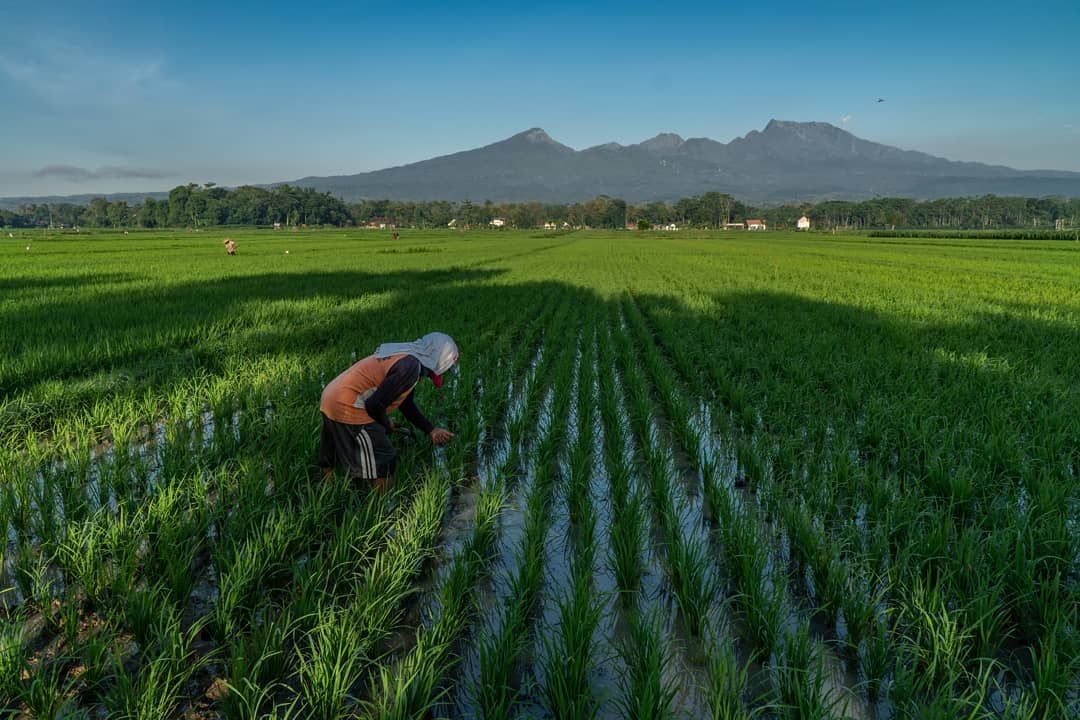Celebrating National Farmers Day: Looking at the Success of Millennial Farmers in Reaching an Income of Up to IDR 300 Million

Photo by Pinterest
(Istimewa)Every year Indonesia celebrates its farmers on the 24 of September. With its fertile soil and sunshine for most of the year, Indonesia has the perfect combination to grow and produce food. It is no surprise that most of its citizens are farmers, and have been for a very long time. Let’s get to know more about the story behind this momentous day and how September 24 became the national farmers’ day.
Farmers day is celebrated to commemorate the history of the struggle faced by farmers and its freedom from suffering. The date was taken from the date of the issuance of the Basic Agrarian Law (UUPA) in 1960. Since then, that day became a milestone in the nation’s history in the importance of farmers and land ownership rights, as well as the sustainability of the agrarian future in Indonesia. It also highlights the country’s concern regarding the lives of its people, especially the welfare of its farmers.
The issuance of the law is a struggle in itself, started three years after Indonesia’s declaration of independence. The newly formed government was struggling to remove remnants of the colonizer law on land ownership. That is until the government successfully took over foreign land into the hands of the local farmers with a series of settlements to avoid any rising conflicts.
Then in 1959, the law was drafted by the Gotong Royong People’s Representative Council (DPR-GR) led by Zainudin Arifin. At the DPR-GR session on September 12, 1960, the then Minister of Agrarian Affairs, Mr. Sardjarwo, in his introductory speech stated
“…perjuangan perombakan hukum agraria nasional berjalan erat dengan sejarah perjuangan bangsa Indonesia untuk melepaskan diri dari cengkraman, pengaruh, dan sisa-sisa penjajahan, khususnya perjuangan rakyat tani untuk membebaskan diri dari kekangan-kekangan sistem feodal atas tanah dan pemerasan kaum modal asing.”
Translated as “…the struggle for reform of the national agrarian law goes hand in hand with the history of the struggle of the Indonesian people to escape from the grip, influence, and remnants of colonialism. In particular, the struggle of farmers to free themselves from the feudal control over land and the exploitation of foreign capital.”
Finally, on September 24 1960 the bill was approved by the DPR as UU No 5 of 1960 concerning Basic Regulations on Agrarian Principles. The Basic Agrarian Law (UUPA) became the starting point for the birth of the new land law to replace the colonial agrarian law.
The principle of the UUPA is to place land for the welfare of the people. It regulates control restriction of land, equal opportunity for every citizen to obtain land rights, recognition of customary law, and stating that foreign citizens do not have property rights. With that, the law tries to ensure that local farmers have control of their land and its management.
So this September, let’s remember that the food that we consume daily comes from the hard work of our local farmers and celebrate the amazing work that they do. Let’s also remember as a younger generation the importance of maintaining farming culture in Indonesia. As reported from Tempo.co, the Agency for Agricultural Extension and Human Resources Development (BPPSDMP) of the Ministry of Agriculture noted that the number of farmers between the ages of 20-39 is only 2.7 million. That number represents 8% of the total number of farmers in Indonesia. The rests are colonial farmers or farmers that have aged. This could mean that as the younger generation gets less and less interested in farming as a profession, then Indonesia might lose its ability to produce food in the future.
But it doesn’t have to be that way. A group of young farmers in Semarang is setting an example on what land management, a green thumb, and digital knowledge could do.
Success of a Group of millennial farmers in Semarang
This group of young farmers is called Tani Citra Muda. Its members consist of 30 people aged 19 to 38 years old and have successfully cultivated 70 types of organic vegetables. Led by Sofyan Adi Cahyono, this group of farmers in Semarang, Central Java started their business 12 years ago.

As reported from Kompas TV, Sofyan explains that they manage their land into organic farming after the continuous rising of the price of fertilizer and pesticide. He noted that before turning into organic farming, sometimes the harvest from conventional farming with fertilizer and pesticide does not meet their expectation. Organically grown vegetables are known to be grown without or fewer chemicals involved resulting in healthier produce with higher nutrient content. With organic farming, Sofyan said that the method is more environmentally friendly and resulting in higher demand.
These young farmers utilize online marketing and digital technology to sell their various organic vegetables products. A step that differentiates them from other farmers. This way they can penetrate a wider market and consumer. They receive demand for their organically grown produce from other regions in Java from Surabaya, Sidoarjo, Jakarta even to South Kalimantan.
The demand for their produce keeps increasing especially during the pandemic when more and more people are shifting to a healthier lifestyle by trying to consume more fruits and vegetables. To keep up with the demand, Tani Citra Muda works together with around 400 fruit and vegetable farmers. They can sell 15 tons of produce per month, an increase from before the pandemic of 4-5 tons per month. From that increase in sales, they now can have an income of 300 million per month.
